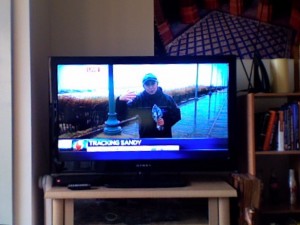Community life competence
Connecting local responses around the world
Connect with us
Website: the-constellation.org
Newsletter English, French Spanish
Facebook https://www.facebook.com/pages/The-Constellation/457271687691239
Twitter @TheConstellati1
Instagram: https://www.instagram.com/constellationclcp/
The storm’s a-comin’
I’m quickly writing this post before the 100-mile wide Hurricane Sandy, which has already killed 65 people in the Caribbean, takes the power out in Washington D.C. where I live.
 We’ve got a little extra food and drinking water set aside for the next couple of days, but there’s nothing much else to do but hunker down and wait out the storm. I’m uncharacteristically glued to local news. Not because the news reporters in their rain-soaked jackets are whipping up fervor, but because I’m captivated by the feeds of the Atlantic Ocean as the gray waves become higher and angrier with each passing hour.
We’ve got a little extra food and drinking water set aside for the next couple of days, but there’s nothing much else to do but hunker down and wait out the storm. I’m uncharacteristically glued to local news. Not because the news reporters in their rain-soaked jackets are whipping up fervor, but because I’m captivated by the feeds of the Atlantic Ocean as the gray waves become higher and angrier with each passing hour.
As we wait, not knowing exactly what’s coming, vulnerability has been on my mind—namely my own.
I’ve been very much in touch with my vulnerability for the last three weeks, since I fell in Belize and dislocated my right shoulder. No movement, pain, and lots of physical therapy. During this time I’ve also had a trip to Opportunity Collaboration, wrapping up a job (announcement of a new position to come), and a move to a new apartment all occurring. Oh and did I mention I’m right-handed?
I cannot cook. I cannot drive. I cannot lift anything that requires two hands. I have had to reach out to friends and ask for help, lots of it. And every time I suck up my pride to do so, the people in my life have responded. They are a constant reminder of the “safety net” beneath me.
In our aid, philanthropy and social entrepreneurship worlds, we often associate vulnerability with people’s characteristics—elderly, young, female, disabled, etc. But this frankly is a crude and flawed way to approach it.
Scott Gilmore may disagree with me, but it’s not been what my friends have done to cover my basic needs over the last couple of weeks. It’s the fact that they’ve been willing and ready to help with whatever I need.
Maybe that’s why the 6,000 aid recipients interviewed in The Listening Project are calling for a change in aid’s business model—from that of delivery of goods and services to one focused on relationships and local priorities.
Perhaps we need to recognize that resilience for many people in the face of disaster and poverty comes from people’s interconnectedness. Over the last three weeks, that’s from where my assurance has come.
That’s why I want to help those involved in international assistance to recognize how and why people who are poor help each other.
And that’s why even Hurricane Sandy won’t rattle me.
***
This post originally appeared at: http://www.how-matters.org/2012/10/29/the-storms-a-comin/
***
Related Posts
Community Resilience: An Untapped Resource for Sustainable Developm...
“Emotional and social well-being is not an afterthought.”
© 2026 Created by Rituu B. Nanda.
Powered by
![]()
You need to be a member of Community life competence to add comments!
Join Community life competence